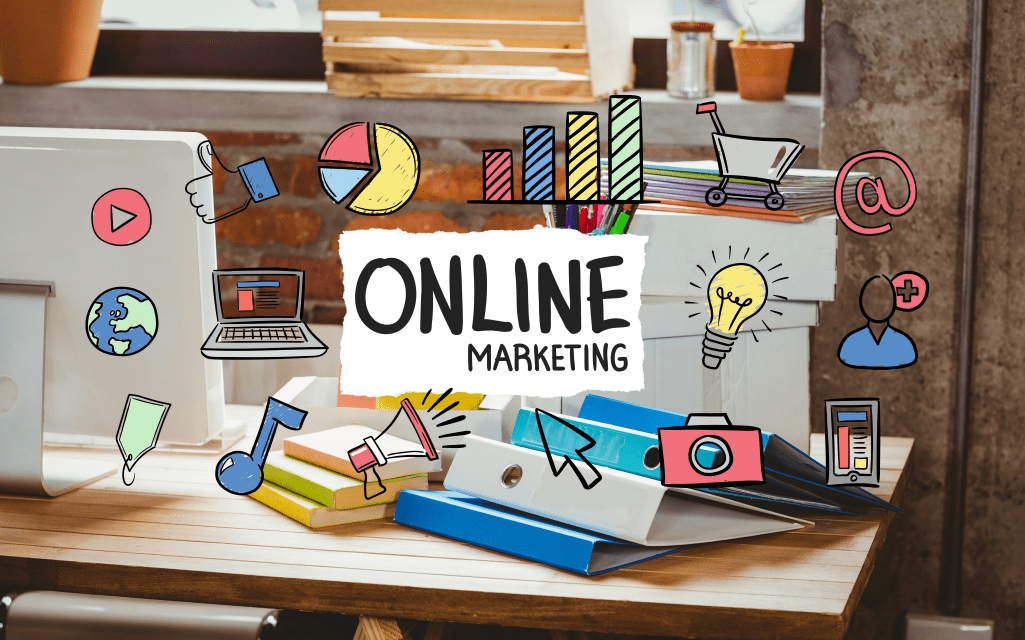Internet marketing (also referred to as digital marketing, online marketing, e-marketing, or web marketing) is defined as an all-inclusive term for “marketing” products and/or services – or any marketing activity that can be done – online. Essentially, it refers to the different strategies done to sell products and/or services over the internet – which includes (but not limited to): affiliate marketing, blogging, email marketing, paid marketing, promotional websites, and social media marketing.
While the primary and obvious goal of internet marketing is to sell goods, services, and/or advertising over the internet; it also aims to achieve the following goals:
To communicate a company’s message about itself (and most especially about what it sells).
To conduct research to be able to identify a “target market” and its demands (i.e., demographics, needs, and preferences).
Internet Marketing Strategies
Today, there are already a number of online marketers (i.e. individuals and companies) out there enjoying the allure of the so-called internet riches. For example, in a Forbes article by R.L. Adams – he featured David Sharpe, a high-8-figure earner who recently generated over one million dollars within a month period.
You might start to wonder how people, like Sharpe, did it. Well, when it comes to building your business over the internet, identifying what type of marketing you want to do is necessary. For starters, here are a few options:
Blog
Numerous websites that offer different products and services (i.e., food, electronics, clothing, dating, academic journal, gaming, social networking, and et cetera) can be found on the internet today. They are either company- or government-owned, whilst some are personal. But whichever they are, most of these websites consider blogging as a necessary part of running business.
According to Jayson DeMers, an internet marketer, in his Forbes article – blogging and content publication can help build a successful business and can make a huge difference in terms of search visibility, leads, and sales as it increases search engine traffic, humanizes your brand, and supports your social media initiatives.
Also, blogging “can be an online storefront” that your potential clients and customers can use to find and learn about what your business offer. It is, as well, a helpful means to easily contact you.
Search Engine Marketing (SEM)
Search Engine Marketing (SEM) is what search engines – such as Google, Yahoo!, and Bing – use to find and rank websites. SEM includes Search Engine Optimization (SEO) that helps boost search engine ranking through certain techniques; and paid search marketing that makes search engines include displaying your website offer in search results – you pay whenever your ad is clicked.
SEM is one of the easy ways to make your target market find you.
 Electronic mail (Email)
Electronic mail (Email)
Email can be used to promote your website offers as well.
The Balance defines email marketing as one segment of internet marketing that helps “develop relationships with potential customers and/or clients” – in which mails are sent directly to customers’ inboxes.
The best example of these mails are the ones you see in your Spam folder often proclaiming “deals”. Many might find this kind of marketing annoying but at its best, it allows clients to be informed and updated.
Social media
Social media marketing (SMM), as the name suggests, utilizes social networking websites as tools to market products and services with goals to produce relevant and attractive content that users can share on different social media platforms in order to increase brand exposure and broaden customer reach. Among the techniques that SMM use to draw visitors to websites is adding social media links to content (i.e., sharing buttons).
While websites benefit mostly from SMM reseller panel, customers are also given the opportunity to ask questions or voice complaints through this type of marketing.
Guest writing
In a blog by Neil Patel, a marketing expert, he discussed how guest writing/blogging has transformed startups and improved businesses by giving websites some sort of “authority, qualified traffic, relevant links, motivated leads, and sales”.
Furthermore, according to a data from Social Marketing Writing, 62.96% of people find blogs with multiple authors quite credible.
Okay. But why should you do one?
First of all, because the internet is where your potential consumers are.
Link Humans – a branding agency based in London – estimated that in 2016, more than three billion people worldwide have internet access. Plus, it is an obvious fact that consumers of today – and probably even yourself – use the internet to find information and resources. This gives marketers the opportunity to offer products and services to an unprecedented number of customers 24/7.
So, if you aren’t doing internet marketing yet; aside from the fact that you are already lagging behind, how will your customers find you?
Second, starting an online business does not need to be expensive.
If you are thinking that creating an online presence requires spending too much, then you’re on the wrong page. The truth is, you can start as quickly and inexpensively as possible through social media platforms like Facebook, Instagram, and/or Twitter.
As a matter of fact, social media is increasingly becoming more and more important. For example, Japan and China – two of the world’s economic leaders and are mortal enemies over a lot of issues such as Nanking massacre and territorial disputes (but that is a different story) – plus the US; are using social media to deepen relationships with customers. Today, Japan’s dominant player and tool is Instagram; whilst China and the US marketers are mostly active on Facebook.
A data from Statistics suggests that by 2020, social media users are expected to reach 2.95 billion. Another reason to get your online business running.



